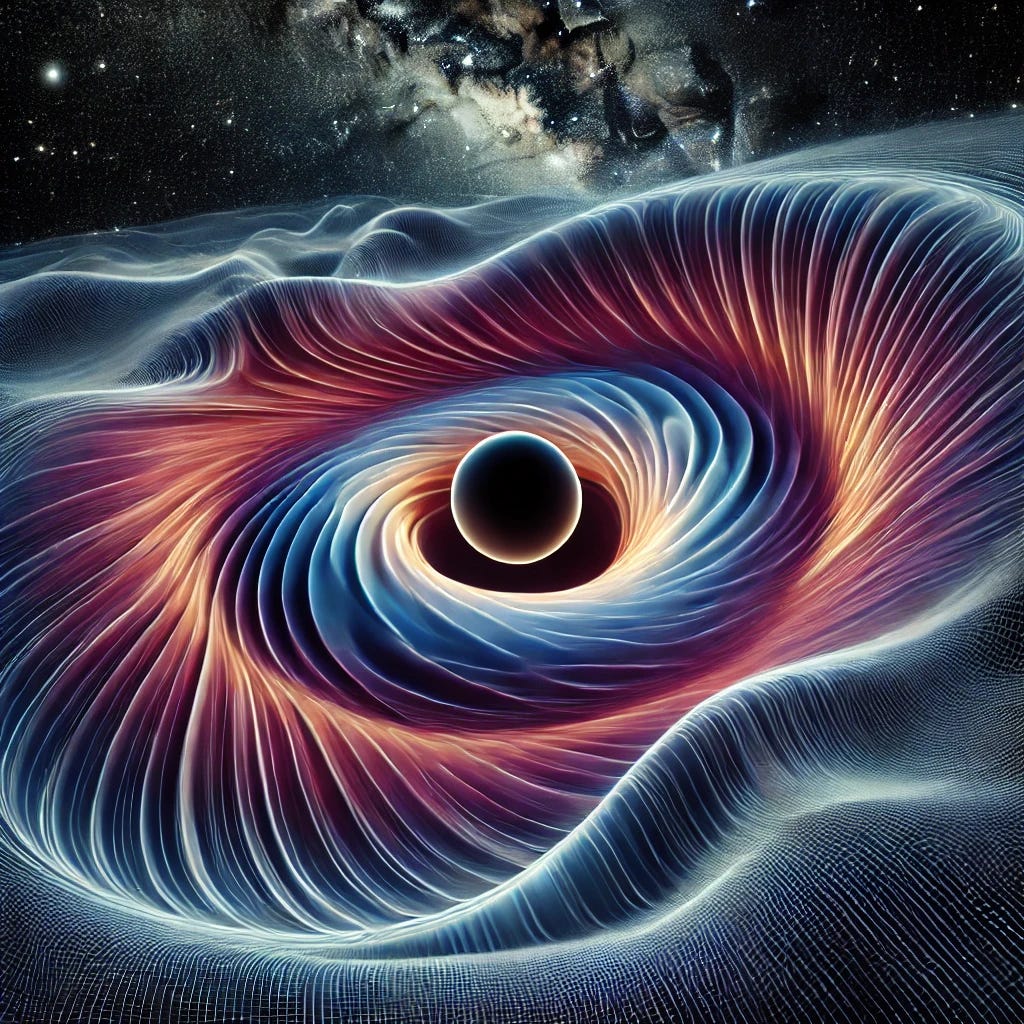The audio above is a summary of the full paper (PDF linked at the bottom of this post), generated by Google’s NotebookLM AI, which is pretty damn cool!
Now, I've spent a lot of time thinking about how advanced technologies will reshape our world, among other things, and one of the concepts that has been stuck in my head is this: are we SURE gravity and spacetime are legit? Like, sure sure?
(Hint: Science is NOT so sure: https://www.quantamagazine.org/the-unraveling-of-space-time-20240925/)
As far as I can tell, they are placeholders to explain things we can observe, but we have never directly observed gravity as a thing, nor spacetime as an entity.
The math works, it holds up to what we observe, but that does not actually mean the underlying labels/explanations are fully correct.
Despite still being taught as one of the four fundamental forces, Einstein showed clearly that Gravity is not actually a fundamental force, and at the smallest levels everything seems to be quantized, so this theory isn’t much of a stretch.
So today I want to dive into something that's been occupying my mind lately, what I’m calling the Unified Field Gradient Theory of Gravity (UFGTG).
For ages physicists have been trying to marry quantum mechanics with gravity, and it's been like trying to fit a square peg in a round hole. It always comes back to gravity, which just does not fit.
But UFGTG solves that.
Here's the gist: imagine the universe as this massive, 3D grid of pixels, kind of like a video game. But instead of pixels, it's made of a universal quantum field. This field is entirely interconnected, can take on all sorts of patterns or configurations, and these configurations are changing constantly, especially where there's a lot of energy or mass hanging out.
Now, here's where it gets wild…what we've been calling "gravity" all this time? It's actually just these field configurations changing. When you've got a chunky bit of mass like a planet or star, it causes the field to change its configurations more rapidly. That rapid change? That's what we feel as gravity!
UFGTG has some pretty rad implications for how we think about the Big Bang and black holes. It suggests that at the very beginning of the universe, these field configurations were changing so fast that it created a sort of "gravity explosion" that kickstarted everything.
One of the things I'm most stoked about with UFGTG is that it makes predictions we can actually test. For instance, it says that super high-energy light might travel at slightly different speeds depending on its energy. It also predicts that gravitational waves (those spacetime ripples we've recently started detecting via LIGO) might behave a bit differently than we thought.
Now, why should you care about all this?
Well, if UFGTG turns out to be on the money, it could solve some major issues in physics. It might explain dark energy (that weird stuff making the universe expand faster), and it could help us understand what really goes down inside black holes.
The way I see it, UFGTG is like the next big upgrade for our understanding of the universe. It's not just tweaking the existing software; it's rewriting the whole operating system. And the best part? This isn't some far-off, pie-in-the-sky idea. The tech to test these predictions is either here or just around the corner.
So here's the deal: whether UFGTG ends up being 100% right or not, it's pushing us to think about the universe in completely new ways. And isn't that what science is all about? Challenging our assumptions, expanding our horizons, and boldly going where no mind has gone before?
I don't know about you, but I'm stoked to see where this leads.
On that note, here are the papers that go into this theory in depth. The first is the full paper, and the second is a fairly comprehensive mathematical proof validating aspects of the theory mathematically.
If you’re so inclined I’d love to hear your feedback after reading!








Share this post